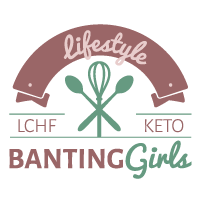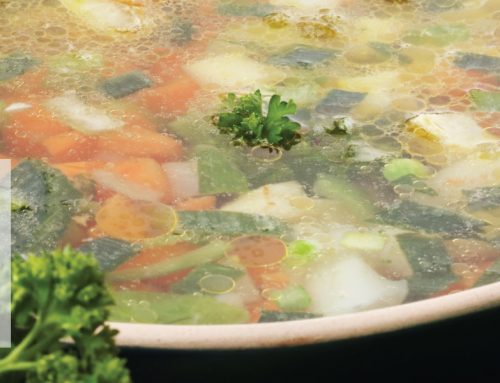Let’s talk about the humble avocado. Avocados are like marmite either you love them or you hate them. However after this blog we hope that you will love them as they have so many fabulous properties and are so good for you.
Avocados are a fruit and not a vegetable as most people think it is. Most fruit consists mostly of sugar and therefore classed as carbohydrate, but avocado is high in healthy omega 3 fats which is essential and very good for your body.
Avocado is incredibly nutritious and contains a wide variety of nutrients, including 20 different vitamins and minerals. Here is a list of the most abundant nutrients in a 100g serving.
- Vitamin K:26% of the RDA.
- Folate:20% of the RDA.
- Vitamin C:17% of the RDA.
- Potassium:14% of the RDA.
- Vitamin B5:14% of the RDA.
- Vitamin B6:13% of the RDA.
- Vitamin E:10% of the RDA.
- Then it contains small amounts of Magnesium, Manganese, Copper, Iron, Zinc, Phosphorous, Vitamin A, B1 (Thiamine), B2 (Riboflavin) and B3 (Niacin).
An average avocado has 160 calories, 2 grams of protein 15 grams of healthy fats. Although it contains 9 grams of carbs, 7 of those are fibre so there are only 2 “net” carbs, making this a low-carb friendly plant food with healthy fat. Avocados does not contain any cholesterol or sodium.

Avocado contains a lot of potassium, 35% more than the average banana. Potassium is a nutrient that most people aren’t getting enough of, which helps maintain electrical gradients in the body’s cells. Avocados have 14% of the recommended RDA of potassium for a 100g portion compared to only 10% in bananas. Several studies show that potassium is linked to reduce blood pressure and to support healthy blood pressure vessels.
Avocados are loaded with heart healthy fatty acids, in fact, 77% of the calories in it are from fat, making it one of the fattiest plant foods in existence. The majority of the fat in avocado is oleic acid and is also the main component in olive oil and believed to be responsible for some of its beneficial effects.
Oleic acid has been linked to reduced inflammation as well. The fats in avocado are also resistant to heat-induced oxidation therefore making avocado oil a healthy and safe choice for cooking.
Avocados are also loaded with fibre and found in large amounts. Fibre is indigestible plant matter that can contribute to weight loss, reduce blood sugar spikes and linked to lower risk of many diseases. Soluble fibre is known to feed the friendly gut bacteria in the intestine, which is important for optimal function of our bodies.
A 100g serving of avocado contains 7 grams of fibre, which is 27% of the recommended daily amount. About 25% of the fibre in avocado is soluble, while 75% is insoluble.
Eating avocados can lower cholesterol and triglyceride levels. Recent studies have shown that avocados can potentially:
Reduce total cholesterol levels significantly
Reduce blood triglycerides by up to 20%
Lower LDL cholesterol by up to 22%
Increase HDL (the “good”) cholesterol by up to 11%
It aids in regulating and stabilising blood sugar
Contains lutein necessary to protect you from age-related eye degeneration
Provides oleic acid which improves cardiovascular system. It also contains folic acid to control homocysteine levels
Contains an antioxidant called “Glutathione” which boosts the body system
Contains more fibre than other foods and will make you feel full faster and you will eat less therefore being a great addition to your diet for weight loss
People who eat avocados tend to be healthier. Eating avocados showed that people had a much higher nutrient intake and were half as likely to have metabolic syndrome. People who ate avocados also had more HDL (good) cholesterol.
If that doesn’t persuade you to eat the fabulous avocado, the following reasons might sway you to give it a try:
Fat in avocados can help you absorb nutrients from plant foods. We need to be able to absorb nutrients, move them from the digestive tract into the body where they can be used. Some nutrients are ‘fat soluble’ which means that they need to be combined with fat in order to be utilised. Such included vitamins A, D, E and K along with antioxidants like carotenoids.
Adding avocado or avocado oil to either salad or salsa can potentially increase antioxidant absorption by 2.6 to 15 fold. It is an excellent way to always include a healthy fat source with your vegetables, without it a lot of the beneficial plant nutrients will go to waste.
Avocados are high in antioxidants, including Lutein and Zeaxanthin. These nutrients are important for eye health and can lower the risk of macular degeneration and cataracts.
Avocados may help you lose weight. Eating avocados will leave you more satisfied and a lower desire to eat over the next 5 hours. Therefore it is very beneficial to have ½ avocado with your breakfast.
Avocados are also high in fibre and low in carbohydrates two attributes that should also promote weight loss for a healthy, real food based diet.
Avocados are delicious and easy to incorporate into your diet. Avocados can be added to salads, salad dressing, guacamole, smoothies to name a few.
Avocados are an incredible tasty food, loaded with nutrients which are lacking in the modern diet. Avocados are weight loss friendly as well.
Here are two excellent videos to watch, one from Dr Eric Berg M.D. and the Healthytarian Living
Lastly, remember LCHF is not a diet, it is a lifestyle change.
Excel with a Low Carb Lifestyle. Until next time!
Eunice & Gina
BantingGirls





